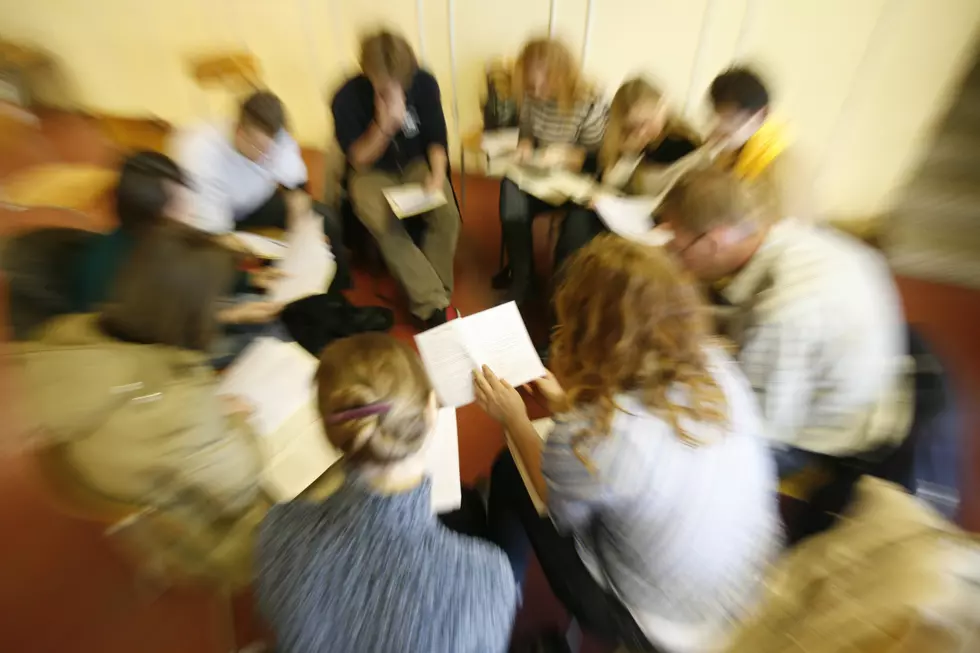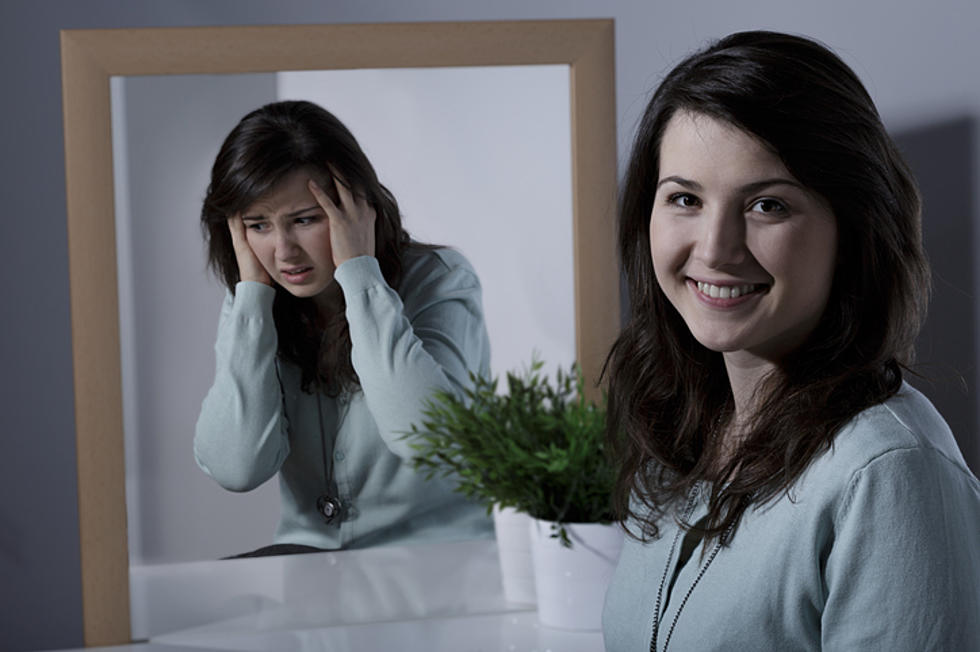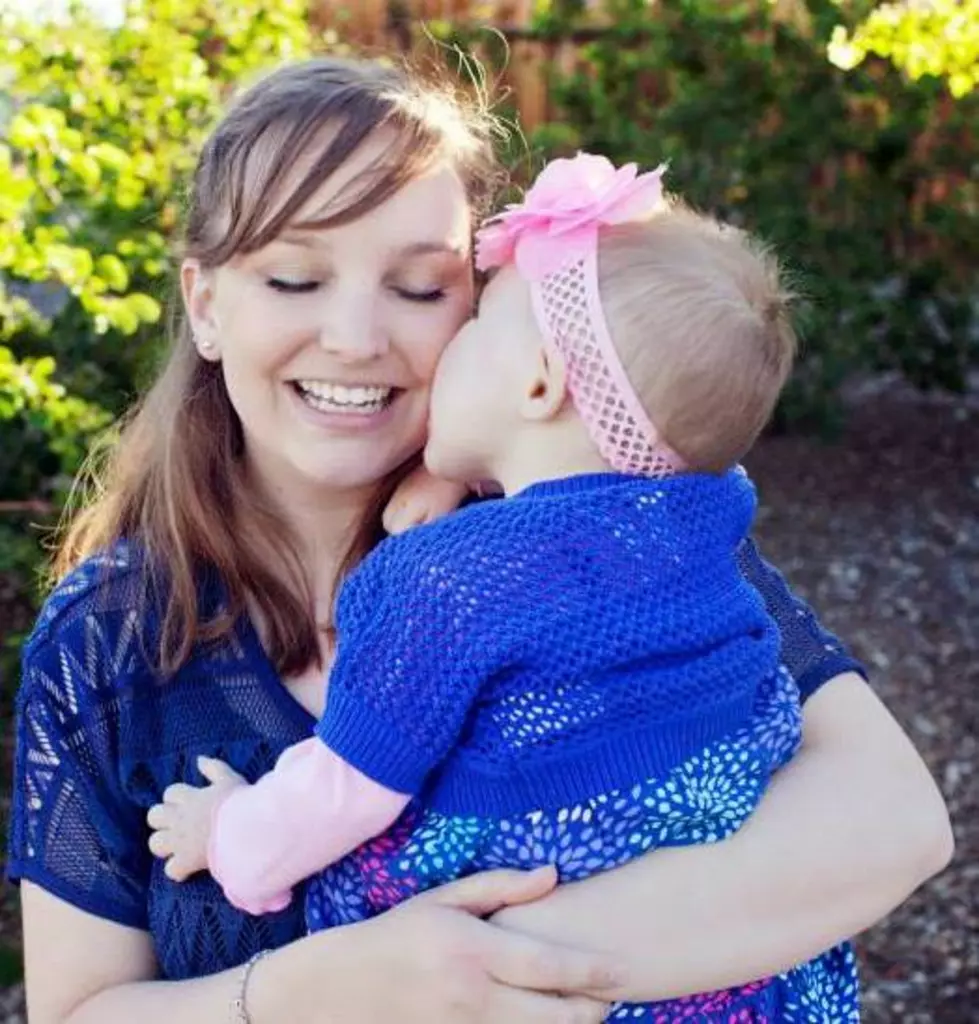
Olivia Caldwell Foundation Offering Support Groups to Parents of Children With Mental Health Issues
There's still something of a stigma.

The issue of mental health has come a long way in recent years. Whereas people yesteryear would sweep things under the rug and hide behind a fake smile or find themselves at the bottom of a bottle, these days it's becoming easier and easier to talk about mental health and the effects thereof.
But it's still not where it could be.
This is especially true for parents who have children that struggle with mental health issues. The stigma is still there. People are still hesitant to speak about their own mental health, let alone the mental health of their children.
For those people, there is the Olivia Caldwell Foundation.
May is Mental Health Awareness Month, and the Olivia Caldwell Foundation, with the support of the Natrona Collective Health Trust, will begin offering support groups for parents and caregivers of children struggling with mental health issues.
Per a press release from the foundation, the Mental Health Support Groups will be held in-person and online, and it will be facilitated by a licensed therapist, Dr. Amanda DeDiego.
"We've always been interested in supporting the overall health for children and families," said Katie Caldwell-Burchett, the Founder of the Olivia Caldwell Foundation. "Obviously, with the pandemic, mental health has become more and more at the forefront, and I've seen it in so many different people, throughout my own family, the struggles with mental health. And if you're a parent that has a child with a mental health condition, or you're concerned about bullying or depression or anxiety in your child, you don't really have anywhere to turn to for support. So that brought up a lot of conversations about 'How do we help support those people?'"
So, the Olivia Caldwell Foundation made a decision as a board and as a staff that they wanted to pursue the means to offer support groups for parents who might otherwise feel like they're dealing with heavy issues by themselves.
They hired Dr. DeDiego to moderate these support groups, but it will absolutely be participant-led.
"It's not a set discussion," Caldwell-Burchett stated. "It's just allowing the participants to have that time to get support from one another. The therapist is there to guide them and offer support, but they're getting to talk about what is most relevant to them at that time."
Caldwell-Burchett said that the groups serve multiple purposes. They want parents to know that they're not alone, but they also want to offer real, tangible advice and suggestions on how to deal with various different issues.
"If you have a child with a mental health condition, you probably feel pretty alone and isolated," she said. "It's still something that not a lot of people want to talk about openly. So we found that it's really hard for families to approach different things. For instance, if you have a child that transitioning from being a younger kid into those teenage years, or a teenager to becoming an adult; it's just trying to navigate through what those changes are like, and figuring out how to continue to support them."
Caldwell-Burchett said another issue that many people overlook when it comes to having children with mental health issues, is the subject of sleepovers.
"When you're deciding on things like your child going on a field trip that's out of town, or they're wanting to have a sleepover, how do you navigate that?" she asked. "How do you have those conversations with the other parent who's going to be keeping your kid overnight, especially if there's medication involved or behavioral issues or things like that? So we wanted to give parents a space where they could really come together and get some support and just learn how to deal with some of these issues."
The support groups will cover topics like that, and a myriad of others. And they'll do so in a non-judgmental, inclusive, compassionate way. Because if the purpose of these groups is anything, it's to promote the idea that parents (and their children) are not alone in their struggles. That they are seen, they are heard, and they are loved.
"You can feel so isolated," Caldwell-Burchett said. "And we've seen that there's even a stigma with people wanting to share with their child's school if their kid has a mental health concern, unless it's something that's blatantly very disruptive in the classroom. It's something that they're not really wanting to talk about. Same thing in your friendships and in people that you deal with on a regular basis. It's not something that they want to talk about a whole lot. But to give them a space where they can come together and realize that it's actually really common is huge. Unfortunately, we live in a day and age where our mental health is more of a difficulty than it maybe ever has been before, and to get ideas and just know that you're not alone is huge."
The groups will remain anonymous. Interested individuals sign up for the group, and will then receive special notices. When and where the groups are held won't be posted publicly and it will all remain confidential. The people behind this idea want it to feel as comfortable, and as safe, as possible.
"What's really cool is that these groups offer up the ability to talk about anything you want when it comes to mental health," Caldwell-Burchett stated. "You can talk about how it affects your marriage, how it affects your friendships, how it affects your day-to-day life. There are all kinds of things that they can talk about and find support for."
Because, at the end of the day, sometimes that's all a person needs. When the day is over and the work is done and the dinner is cooked and the rest of the family is sleeping, that's when your thoughts catch up with you. These groups are for the moms and the dads, or the uncles and the aunts, or the grandparents, or anybody else who has a child dealing with the everyday gunk that life can bring. It's for the mama who is barely holding it together, the dad who can't seem to take a breath. It's for anyone who just needs to talk and know that they will be heard.
When Katie Caldwell-Burchett started the Olivia Caldwell Foundation, she made a promise to her baby girl that her story, that their story, was going to change the world. It was going to make a better place for parents and their children. It was going to offer services to kiddos battling complicated medical conditions and, now, that includes mental health issues.
Cancer is a disease. It's something that infects a person from the inside out. It's something that people can see in a person, and know that they are sick. Mental health is different. It's a silent disease; a hidden one. It's something that so many people battle, but still don't want to talk about. But it's time to start talking about it. And with the Olivia Caldwell Foundation Mental Health Support Groups, parents can talk about their struggles, and the struggles of their children with people who get it, who understand it, who are going through it themselves.
It's safe, it's confidential, it's important. And it's long overdue.
To find out more about these support groups, and all of the services that the Olivia Caldwell Foundation offers, you can visit their website or call the foundation at 307-333-1273.
Breathtaking Fall Sunsets From Across Wyoming
More From Wake Up Wyoming









